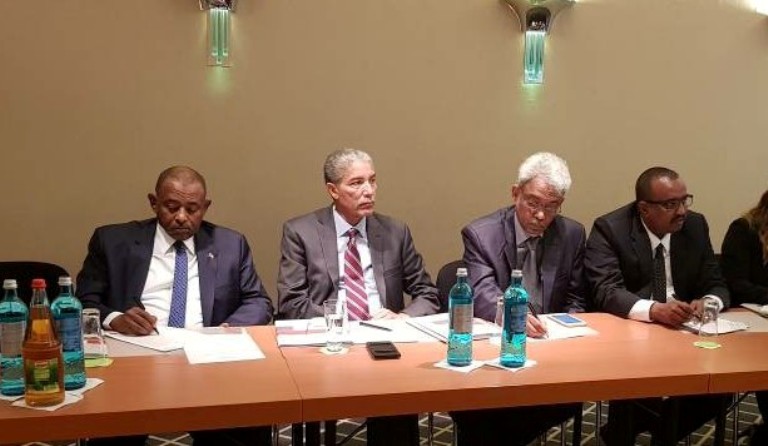Sudan won’t accept new implementation mechanisms for Doha document: official

May 1, 2018 (KHARTOUM) – The chairman of Darfur peace follow-up office Magdi Khalaf Allah said the mechanisms approved by the Doha Document for Peace in Darfur (DDPD) would remain the only means to implement any future agreement with the rebel movements.
Delegations from the Sudanese government, Justice and Equality Movement (JEM) and Sudan Liberation Movement – Minni Minnawi on the other side held a two-day meeting in Berlin on 16-17 April to discuss a declaration of principle ahead of the resumption of peace talks to end the western Sudan region conflict.
But the meeting wrapped up without a deal despite the high expectations as the mediation and facilitators worked hard to prepare a compromise breaking the stalemate over the DDPD framework agreement signed on 14 July 2011 between the government and several armed groups.
JEM leader Gibril Ibrahim on Saturday told Sudan Tribune the parties failed to strike a pre-negotiation agreement after Khartoum refusal to designate implementation mechanisms different from what is provided in the DDPD.
In an interview with the official news agency SUNA, Khalaf Allah said the Berlin talks didn’t fail but stalled over the rebels’ demand to develop new implementation mechanisms prior to agreeing on the negotiations agenda.
He pointed out that the government wouldn’t accept to introduce new mechanisms as long as the parties have agreed to the DDPD as a basis for negotiations and Doha as the venue for the talks.
Khalaf Allah added any future agreement with the rebel movements would be attached to the DDPD as a protocol agreement.
It is noteworthy that Germany, United States, United Kingdom and Norway issued a joint statement on 24 April urging the Sudanese parties to remain engaged in the process and praised the concessions made by the two parties.
The four western countries further said they will “consider options for further progress together with the parties, partners and interested international actors”.
The holdout groups including the JEM and SLM-MM refused to sign the Doha Document for Peace in Darfur (DDPD) in July 2011 and called to open the framework agreement for talks.
Other groups like the Sudan Liberation Movement – Abdel Wahid (SLM-AW) have declined to join the process and rejected its outcome.
The African Union High Implementation Panel (AUHIP) led by former South African President Thabo Mbeki proposed a holistic process to end the armed conflicts and produce political reforms in Sudan.
During the year 2015-2016, talks between the government and the SLM-MM and JEM failed to reach a tangible result despite international efforts to bring together the opposition groups and to narrow the gaps between them and the government.
The Sudanese army has been fighting a group of armed movements in Darfur since 2003. UN agencies estimate that over 300,000 people were killed in the conflict and over 2.5 million were displaced.
(ST)
